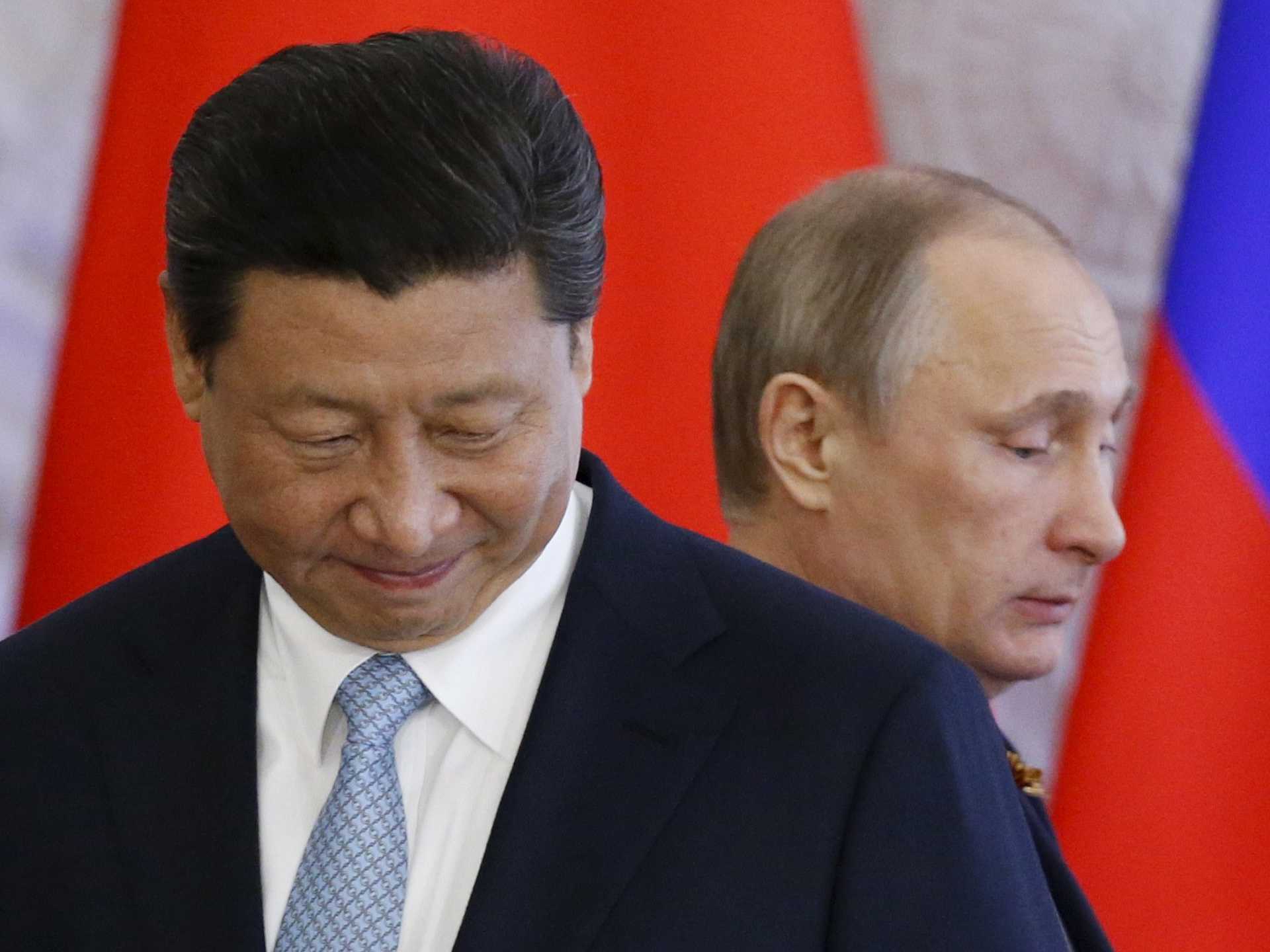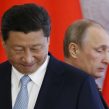
‘Land Grab’ Case Lays Bare the Frailty of Russian-Chinese Relationship
Publication: Eurasia Daily Monitor Volume: 12 Issue: 118
By:

At a time when Moscow’s relations with the West are continuing to deteriorate, and with the unresolved Ukrainian crisis looming large in the background, Russia is seeking to strengthen its partnerships with the Middle East and Asia, first and foremost with China. The recent St. Petersburg International Economic Forum, which was held on June 18–20, in the city of Vladimir Putin’s birth, offered a new opportunity to showcase the Russian-Chinese friendship. While the forum was snubbed by Western leaders and many Western firms—but not the oil supermajors BP, Royal Dutch Shell and Total, given their strategic ties with Russia—Moscow and Beijing triumphantly announced the signing of 29 investment agreements worth over $20 billion (Gazeta.ru, June 21; Sputniknews.com, June 20).
One such agreement was the $18.4 billion contract between Russian Railways and a consortium of two Russian companies and China Railway Eryuan Engineering Group to build a high-speed rail link between Moscow and Kazan, the capital of Tatarstan. It is expected to reduce travel time from 14 to only 3.5 hours and is part of a broader transport project aimed at connecting Moscow with Beijing by rail, worth almost $130 billion. Earlier, in January, the Chinese authorities had been quoted as saying they were ready to invest as much as $242 billion into the construction of a 7,000-kilometer high-speed railway linking the two capitals, via Kazakhstani territory (Rg.ru, June 23; TASS, June 18; Zakon.kz, January 22).
Agriculture is another priority area in Russian-Chinese relations. Speaking at the forum, Russia’s Agriculture Minister Alexander Tkachev said that “Russia can earn serious money and conquer a sizable share of the Chinese market,” noting that “not doing so would be a great mistake.” The Russian authorities currently plan to start selling wheat to China as early as this August, pending the lifting of the import ban by the Chinese side. It was introduced back in 1997 on safety concerns and was followed, in 2004, by a Russian ban on pork imports from China. Now that Moscow has reopened its borders to Chinese meat since August 2014, just days after it slapped a food embargo on the West, Beijing is likely to reciprocate, thus ushering in a new era in their trade relations (Lenta.ru, Agrobel.ru, June 19, 2015; Tbc.ru, October 12, 2014).
Although the picture may look quasi-idyllic, rapidly growing Russian-Chinese relations are not free of controversy. On June 10, China Daily reported that the Shenzhen Stock Exchange–listed Zoje Resources Investment, from Zhejiang province, had secured a 49-year land lease contract with Russia’s Trans-Baikal Region, on the border with China and Mongolia. Its subsidiary Huae Sinban would thereby lease 50,000 hectares of pastures and an extra 65,000 hectares of uncultivated land to grow vegetables, wheat and other agricultural produce. The total value of the contract is estimated at $28.4 million, according to the Chinese newspaper. The article says that the deal will be implemented under the so-called Silk Road Economic Belt initiative, first proposed by Chinese President Xi Jinping in September 2013, with a view to spreading economic growth to China’s western neighborhood (China Daily, June 10).
Reports in the Russian press began to surface almost a week later, on June 16, when several newspapers, citing anonymous sources close to the Trans-Baikal administration, wrote that Chinese farmers would pay 250 rubles ($4.60) per hectare per year within the framework of the lease deal. If the initial phase of the project proved successful, they said, the latter could be entitled to an additional 200,000 hectares of leased land as of 2018. Meanwhile, the Russian daily Vedomosti quoted the provincial governor, Konstantin Ilkovsky, as saying that his administration was still in talks with Zoje Resources Investment regarding a $320 million investment project concerning a total area of 150,000 hectares. With the two sides having so far signed only a memorandum of understanding, the final agreement is due sometime in the spring of 2016, he told the newspaper (Vedomosti, Rbc.ru, June 16).
Despite all these discrepancies, the Trans-Baikal regional authorities seem determined to move forward with the agricultural project, which should allow them to return to service a large portion of unused land resources. According to official data, more than 800,000 hectares of land are currently empty throughout the region, compared with 20,000 occupied by agriculture, which is substantially lower than in Soviet times when this number exceeded a million hectares. The re-cultivation of this land will also create new jobs for at least a thousand workers, of whom 75 percent should be Russian citizens. Local agriculture in the Trans-Baikal Region has never been famous for high yields because of unfavorable weather conditions and lower-than-average soil quality. However, the Chinese investor will need to demonstrate progress in less than four years. Otherwise, Russian law provides that the contract must be canceled and the land vacated, denoting a real investment risk (Novaya Gazeta, June 23; mk.ru, June 16).
Yet, many Russians are still wary of the Chinese, even though, as the 2010 census shows, the latter officially represent less than 0.1 percent of the population of the Trans-Baikal Region. On June 22, the Liberal-Democratic Party of Russia (LDPR), whose fiery nationalist rhetoric has thus far largely focused on labor migrants from Central Asia and the North Caucasus, said it would ask Prime Minister Dmitry Medvedev to veto the Chinese deal out of “national security” considerations. The LDPR’s vice-chairman, Igor Lebedev, who also happens to be the son of its leader, Vladimir Zhirinovsky, warned that “in 20 years there might be more Chinese than Russians in Trans-Baikal,” thus allowing the province to “be annexed by China” (Forbes.ru, June 22; Mk.ru, June 20). This case clearly shows not only the limits of the Russian-Chinese strategic partnership but also the wider implications of Russia’s annexation of Crimea, which has created an extremely dangerous precedent for Russia in the first place.




